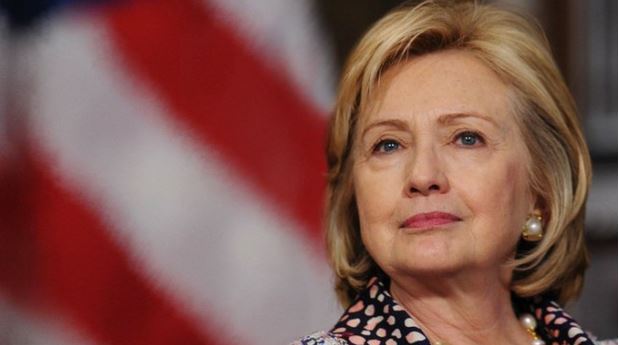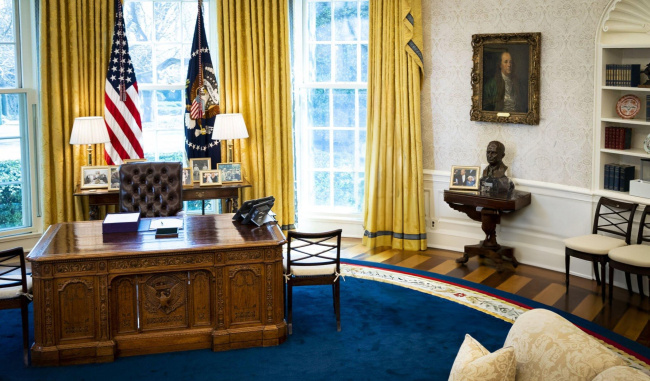Hillary Clinton's Email "Scandal": How Will It Affect the Election?
With the Democratic Presidential Nomination in sight, Hillary Clinton must still contend with a continuous conversation about her email practices. How will this scandal, or non-scandal, affect the presidential race yet to come? A look at the perspectives of the American constituency and pending investigations may predict Clinton's likely future... and the future of the American presidency.

Politico recently wrote about the “last days” of Democratic candidate Bernie Sanders’s “revolution,” revealing that Sanders is clinging to the chance that his opponent, Hillary Clinton, will be indicted for criminal offenses, clearing the way for Sanders who has otherwise been mathematically defeated [1]. While Sanders’s consolation may be remote, his hopes are rooted in a scandal that has been a fixture in the 2016 presidential election: Hillary Clinton’s emails. Clinton’s communication choices while she was Secretary of State and resulting investigations all constitute a scandal, or non-scandal, that seemingly won’t end.
Before taking office as Secretary of State, Hillary Clinton, and husband Bill Clinton, set up a server for private use in their New York home. Throughout her tenure as Secretary from January 2009 to February 2013, Clinton used the server to host a personal email account which she exclusively relied on to conduct government business; she never used or activated a “state.gov” email address. Investigation of the September 2012 attack on the American consulate in Benghazi, Libya precipitated the discovery of Clinton’s personal server and email account. In June 2013, after she left office, investigating State Department staff recognized for the first time correspondence between Clinton’s personal account and official accounts. Upon the request of the State Department, Clinton handed over more than 30,000 emails in December 2014 for use in the ongoing enquiry. Knowledge of Clinton’s private account became public in March 2015 when the State Department revealed Clinton’s reliance on her personal email to congressional investigators and the media began reporting the story.
Clinton explained that she “opted for convenience to use my personal email account, which was allowed by the State Department” and repeatedly emphasized that her choice was “not disallowed” by any law or regulation. She also explained that an additional 32,000 emails deemed private had been deleted from the server. The State Department began publicly releasing the emails in its possession in May 2015. Later, in fall 2015, Clinton testified about her email use before a special House committee created to examine the Benghazi attack which yielded no conclusive findings about Clinton’s email practices. Nevertheless, many have since accused Clinton of disregarding rules, risking national security and thwarting transparency. These sentiments have persisted throughout Clinton’s presidential campaign and are echoed by formal responses such as civil suits and government investigations. The primary challenges that Clinton faces are Freedom of Information suits, a State Department report and a Federal Bureau of Investigations (FBI) probe.
Partisan accusations by private groups
First, the State Department and Clinton were hit with several civil suits invoking the Freedom of Information Act. The act was created in 1966 to “provide the public the right to request access to records from any federal agency,” and is now the legal basis for accusations that Clinton wrongfully concealed information by controlling communication. Thus, plaintiffs such as the conservative watchdog group, Judicial Watch, are demanding the release of emails and further investigation. Judicial Watch’s suit, though it is against the State Department and does not name Clinton as a defendant, has affected Clinton due to the traction it has gained in court. State Department officials and Clinton staffers, including Clinton’s former chief of staff, Cheryl Mills, have already been compelled to testify under oath for the case. The legitimacy that the case has been granted lends credence to Judicial Watch’s claim that Clinton intentionally set up her private server to avoid accountability. To date, Clinton’s campaign has dismissed the suit by framing it as a partisan attack, her campaign saying, “Judicial Watch continues to clog the courts with its partisan lawsuits intended only to hurt Hillary Clinton’s presidential campaign” based on “bogus” allegations.
Disregard for Department of State’s policies
However, government investigations conducted by agencies considered non-partisan are less easily dismissed as mere politics. The latest remarks come from a report by the Office of the Inspector General of the State Department (OIG), released in May [2]. The report reviews email and technology policies spanning 20 years and finds regulatory violations across the agency but notes specific breaches by Clinton. The report focuses on record keeping and cyber security and shows that Clinton violated rules pertaining to both. The former is governed by the Federal Records Act which sets guidelines for preserving all types of records and communication. The report states that Clinton violated the Act by not printing and filing her emails and by failing to surrender emails that dealt with Department business when she left office. Second, the report outlines cybersecurity policies which require officials to “use agency-authorized information systems”. The OIG determined that Clinton “had an obligation to discuss using her personal email account to conduct official business,” yet found no evidence that Clinton requested approval; had Clinton done so, she would have been denied permission. The report concludes that Clinton did not break the law but only violated administrative policy, yet isolating Clinton’s violations and documenting warnings she received to alter her behavior clashes with Clinton’s claims that she was “allowed” to use her personal account and server. In response, Clinton allies have alluded to conflicts of interest due to some individuals in the OIG who have been critical of Clinton in the past, but accusations of bias are disputed and have not masked the report’s critical tone.
Possible FBI Indictment
Finally, Clinton’s largest threat may be the ongoing FBI probe which began after investigators found confidential information in 2,028 of Clinton’s emails in July 2015. The emails were not marked classified when originally transmitted. The Bureau explicitly stated that the investigation pertains to “law enforcement” and is an evaluation of possible criminal conduct. The investigation will determine whether or not to indict Clinton or others involved with her server. The FBI could be examining possible violations of the Espionage Act, under which causing sensitive information “to be removed from its proper place of custody” due to gross negligence is a felony or less-severe misdemeanor charges for “mishandling classified information.” Laws concerning classified information tend to be broadly written and subject to prosecutorial discretion; a study of past investigations for the mishandling of classified records shows that the FBI rarely indicts without some evidence of distribution that is absent in Clinton’s case. In fact, the FBI did not prosecute in 80% of similar cases from 2011 to 2015 [3]. Some Democrats are concerned with the role of partisan politics in the FBI probe because of the bureau’s director James Comey. Though Comey is a Republican, he was appointed by President Obama and is respected on both sides of the aisle, mitigating claims that Comey would skew investigations against Clinton. The FBI has not yet indicated when it will finish its investigation but has indicated that the election is not affecting the probe’s timeline.
To keep reading this editorial, please download the file below.

Regions and themes
Share
Download the full analysis
This page contains only a summary of our work. If you would like to have access to all the information from our research on the subject, you can download the full version in PDF format.
Hillary Clinton's Email "Scandal": How Will It Affect the Election?
Related centers and programs
Discover our other research centers and programsFind out more
Discover all our analysesWater in Mexico: an Emergency that Will Wait
Access to water is already and will become increasingly problematic for Mexican economic actors due to the progressive scarcity of the resource resulting from climate change, a geographical distribution that does not coincide with that of the population or economic activity, and management that has so far been far too lax.
Donald Trump v. the States: the Case of New York
While the disruptive policies of the second Trump administration are being implemented at the federal level and on the international stage, they are also being felt in the federal states and major cities across the country. In the spring of 2025, several cases involving the state and city of New York demonstrate that the president’s attacks on environmental protection, the separation of powers, freedom of speech, etc., are also being carried out at the local level.
How the US under Trump Became a Strategic and Ideological Adversary of Europe
The Europeans' worst security nightmare seems to be coming true: on Tuesday, February 18, 2025, U.S. Secretary of State Marco Rubio and Russian Foreign Minister Sergey Lavrov met in Saudi Arabia to initiate the normalization of relations between their two countries. The meeting also aimed to set up peace negotiations for Ukraine. However, despite having the potential to affect the entire continent, the discussions took place without the Europeans or the Ukrainians being present.
Will Trumpian Authoritarianism Lead to a Constitutional Crisis?
Since his return to the White House on January 20, 2025, President Donald Trump has signed around sixty executive orders to implement his political agenda. Numerous other measures have also been introduced by the White House and the new Department of Government Efficiency (DOGE) as part of these orders.








